MB Meaning: What Does MB Mean?
What is MB meaning?
Well, with the arrival of social media and instant messaging, the way we communicate has transformed massively. And in a world where time is of the essence, we often find ourselves shortening words and phrases to get our point across as quickly as possible. Therefore, nowadays, we often use slang terms and abbreviations to convey our thoughts and emotions.
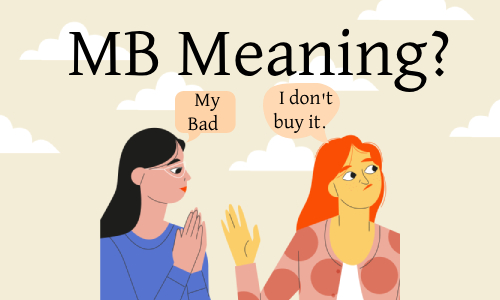
One such abbreviation that has recently gained immense popularity is "MB." However, if you're unfamiliar with this term, it can be confusing, thus bringing us to the question of the day; What does MB mean?
Well, in today's article, we'll have a look at the following. And so, with that said, let's get started!
What Does MB Mean in a Text
MB is short for my bad, a colloquial expression used to apologize for a mistake or an error. This slang and abbreviation are basically an informal way of taking responsibility for something that went wrong without being too formal or serious.
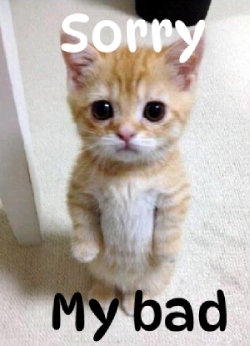
When people use "MB" instead of writing out the entire phrase "my bad," they use an abbreviation commonly used in text messages, instant messages, and social media posts. This can save time and space when typing out a message or post.
For example, if someone sends a message to their friend and realizes later that they made a mistake, they might respond with "MB" or "my bad" to apologize for the error. This could happen in various situations, such as missing an appointment, forgetting to reply to a message, or making a typo in a message.
It's worth noting that "my bad" is an informal expression and may not be appropriate in all situations. It may be more appropriate to use a more formal or professional apology in more formal or professional settings.
What Are the Other Common MB Definitions
As noted, MB stands for "My bad," which is a slang expression commonly used to acknowledge a mistake or error and apologize for it. However, this abbreviation can as well have different meanings, such as:
1 Megabyte
MB is the abbreviation for "megabyte," a digital storage unit equal to 1,048,576 bytes. This meaning is more common than the other three alternative meanings. It is also frequently used to measure the size of computer files, such as documents, images, videos, and music, and that's why it is commonly used.
2 Mind blown
In some cases, MB can stand for "mind blown," a phrase used to express amazement, surprise, or shock about something.
3 Mercedes-Benz
MB is the initial for "Mercedes-Benz," a German luxury automobile manufacturer known for producing high-end cars.
4 Music box
In gaming, MB can be used as an abbreviation for "music box," an item in some games that plays a particular tune or melody.
What's the Origin MB Slang
The origin of "MB" as an acronym for "my bad" can be traced back to the late 1970s when the phrase was first used as a form of American street slang.
However, the first recorded written usage of the phrase was in a book titled "Back-In-Your-Face Guide to Pick-Up Basketball" by authors C. Wielgus and A. Wolff in 1986.
This phrase gained popularity over the years, but it wasn't until the movie "Clueless" was released in 1995 that it became widely used in regular conversation and online.

As the internet became more prevalent, this slang term became increasingly popular, particularly on social media sites that limit character usage.
To make typing easier, quicker, and more convenient, people started using "MB" as an abbreviation for "my bad." Over time, this acronym has become widely accepted and is now commonly used across various online platforms and in text messaging.
Overall, the evolution of "my bad" to "MB" is an example of how language can change and adapt to fit the needs of its users. It also demonstrates how pop culture, like the movie "Clueless," can significantly impact language use and contribute to the development of new slang terms and acronyms.
Now that we have answered your question on what does mb stand for, let’s now see how you can use this slang in day-to-day conversation with your friend and family.
How Is MB Used in Different Situations
1 Apologizing for a mistake
As noted, "MB" is most frequently used as a shorthand for "my bad," which is a colloquial expression used to apologize for a mistake or error. For example, if someone forgets to reply to a text message or email, they might respond with "MB" to acknowledge the oversight and apologize for any inconvenience caused.
Here are real-life text conversation examples of MB used to apologize:
Mark: "Hey, did you get the email I sent earlier?"
You: "Sorry, I just saw it now. MB for the delay!"
2 Acknowledging responsibility
In addition to being an apology, "MB" can also acknowledge responsibility for something. For example, if someone accidentally spills a drink on someone else, they might say "MB" to show they recognize their role in the incident.
You: "I can't believe I forgot my keys again."
Mark: "It happens to the best of us. MB for not reminding you to grab them before we left."
3 Expressing regret
"MB" can also express regret or disappointment about a situation, even if the person using it is not necessarily at fault. For example, if someone has to cancel plans with a friend, they might say "MB" to express their regret for having to back out.
Mark: "I'm sorry, I can't attend your party tonight."
You: "No worries, I understand. MB that we won't get to hang out."
4 Admitting a misunderstanding
Sometimes, "MB" can be used to admit that someone misunderstood something. For example, if someone misinterpreted a comment or message, they might say "MB" to show that they now understand the situation more clearly.
Mark: "Why did you ignore my message?"
You: "Oh, I thought you were talking to someone else. MB if I got confused."
5 Humorous use
Finally, it's worth noting that "MB" can sometimes be used humorously or ironically. For example, someone might say "MB" after doing something deliberately mischievous or cheeky to make light of the situation.
Mark: "Why did you eat the last slice of pizza?"
You: "MB, I thought you were full."
How to Determine If Your Kid Is Using Such Slang Term
How can you tell your kid isn't using slang terms when conversing with their friend, be it casual or on social platforms? – it is difficult, right?
Remember, so much dangerous slang, such as body count, OG, FO, GTFO, WTF, and many more, can land your kids in problems. And so, how do you tell if they are using such terms?
Generally, there are several ways to do so, such as:
Ask them: Having an honest conversation with your kids is one way to ensure your kids are well aware of the language and terms they are using.
Check their mobile device: Going through their devices and seeing all their conversations with their friends is a more effective method than simply asking them. Check whether they use such terms in direct messages, social media posts, and replies.
Whether they are using it or not, be sure to advise them accordingly. For example, you can let them use positive slang like OMG and MB but avoid other negative slang.
Use parental control app: This is definitely the best and most effective method of the three. This is simply because it lets you keep track of their conversations on all devices without them knowing. Furthermore, if they hide or delete some of their messages, you will still have a copy stored on your Parental control app. The best app for this is the AirDroid Parental Control App.
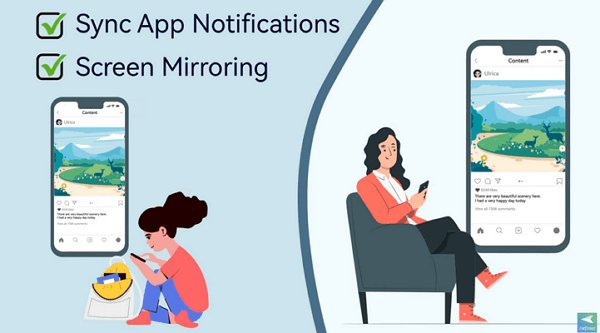
Why Choose AirDroid Parental Control App?
The AirDroid Parental Control App lets you easily monitor your child's text messages.
The app allows you to view all incoming and outgoing messages and the time and date of each message.
This feature ensures that you stay up-to-date with your child's digital activities, and you can quickly identify any inappropriate behaviour or conversations. This is enabled by the Sync notifications feature available on this app.
Other beneficial features include:
- GPS Location Tracking
- Safe Browsing thanks to the app and device management
- Remote monitoring
- Daily and weekly reports on everything about tracked devices
Final Thought
In conclusion, the slang term MB (mainly short for My Bad) has become popular in various contexts. As we have seen, it can mean "megabyte" in a technological setting, "mind blown" on social media, and "my bad" in casual conversation.
The use of "MB" has become even more widespread in recent years, especially on social media platforms like TikTok, where it has gained significant traction.
MB, the common term used on TikTok, primarily refers to 'My Bad'.
As language evolves, slang terms like "MB" provide an exciting glimpse into how people communicate and express themselves. The rise of social media and instant messaging has accelerated the popularity of abbreviations and acronyms, making it easier for people to convey their thoughts and emotions more efficiently.





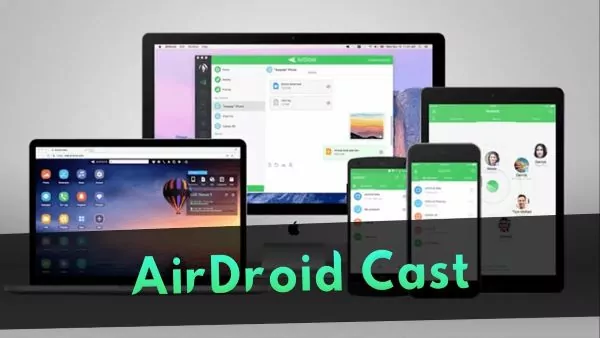
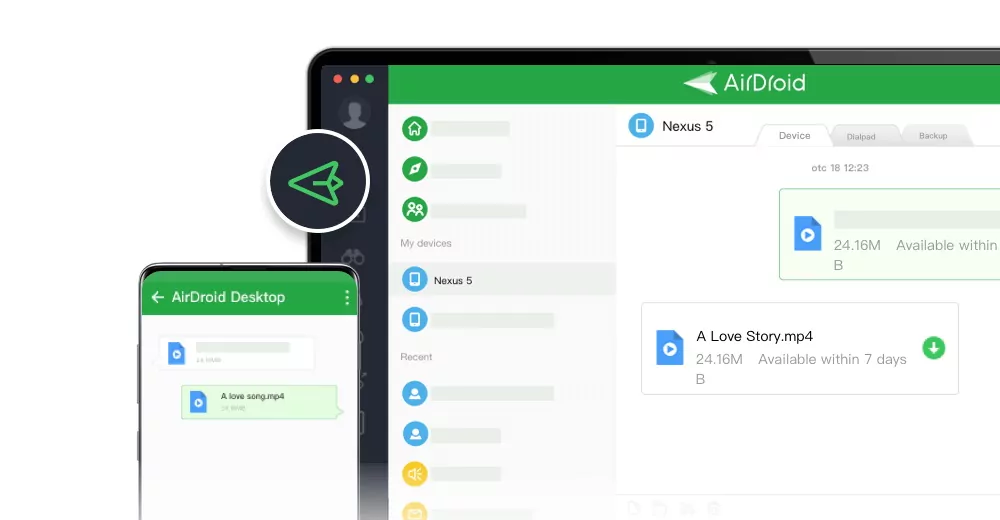



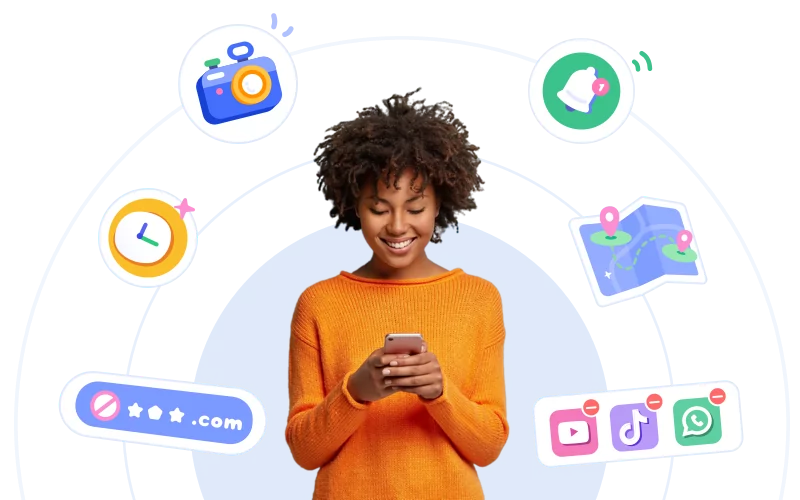
Leave a Reply.